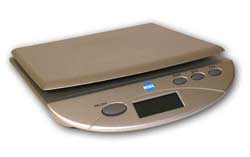The definitive marijuana guide from Cannabis UK
Medicinal cannabis: is Delta(9)-tetrahydrocannabinol necessary for all its effects?
by
Wilkinson JD, Whalley BJ, Baker D, Pryce G,
ABSTRACT
Cannabis is under clinical investigation to assess its potential for medicinal use, but the question arises as to whether there is any advantage in using cannabis extracts compared with isolated Delta(9)-trans-tetrahydrocannabinol (Delta(9)THC), the major psychoactive component. We have compared the effect of a standardized cannabis extract (SCE) with pure Delta(9)THC, at matched concentrations of Delta(9)THC, and also with a Delta(9)THC-free extract (Delta(9)THC-free SCE), using two cannabinoid-sensitive models, a mouse model of multiple sclerosis (MS), and an in-vitro rat brain slice model of epilepsy. Whilst SCE inhibited spasticity in the mouse model of MS to a comparable level, it caused a more rapid onset of muscle relaxation, and a reduction in the time to maximum effect compared with Delta(9)THC alone. The Delta(9)THC-free extract or cannabidiol (CBD) caused no inhibition of spasticity. However, in the in-vitro epilepsy model, in which sustained epileptiform seizures were induced by the muscarinic receptor agonist oxotremorine-M in immature rat piriform cortical brain slices, SCE was a more potent and again more rapidly-acting anticonvulsant than isolated Delta(9)THC, but in this model, the Delta(9)THC-free extract also exhibited anticonvulsant activity. Cannabidiol did not inhibit seizures, nor did it modulate the activity of Delta(9)THC in this model. Therefore, as far as some actions of cannabis were concerned (e.g. antispasticity), Delta(9)THC was the active constituent, which might be modified by the presence of other components. However, for other effects (e.g. anticonvulsant properties) Delta(9)THC, although active, might not be necessary for the observed effect. Above all, these results demonstrated that not all of the therapeutic actions of cannabis herb might be due to the Delta(9)THC content.
HOME

Sitemap:









